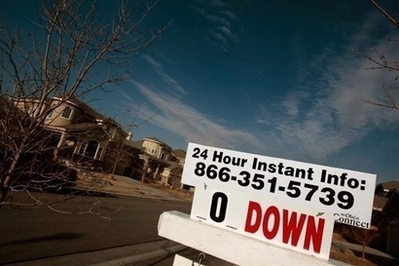IMF sees US falling into recession
(Agencies)
Updated: 2008-04-09 23:23
Updated: 2008-04-09 23:23
WASHINGTON - The world economy will slow sharply this year, according to an International Monetary Fund forecast, with the United States sliding into a recession amid housing, credit and financial slumps.
The IMF, in a World Economic Outlook released Wednesday, slashed growth projections for the United States - the epicenter of the woes - and the global economy as a whole.
Economic growth in the United States is expected to slow to a crawl of just 0.5 percent this year, which would mark the worst pace in 17 years, when the country last suffered through a recession, the IMF said. The United States won't fare much better next year; the IMF projected the US economy will grow by a feeble 0.6 percent in 2009.
"The US economy will tip into a mild recession in 2008 as the result of mutually reinforcing cycles in the housing and financial markets," the IMF said.
Many private economists and members of the US public believe the country has already fallen into its first recession since 2001. For the first time, Federal Reserve Chairman Ben Bernanke acknowledged last week that a recession was possible.
An increasing number of analysts think the US economy, which grew by 2.2 percent in 2007, started shrinking in the first three months of this year and is still contracting. Under one rough rule, if the economy contracts for six straight months it is considered to be in a recession. A panel of experts at the National Bureau of Economic Research that determines when US recessions begin and end, however, uses a broader definition, taking into account income, employment and other barometers.
To limit the damage, the Federal Reserve has been slashing interest rates since last September and has taken a number of extraordinary measures to avert a financial meltdown, which would have dire consequences for the US economy.
"The financial market crisis that erupted in August 2007 has developed into the largest financial shock since the Great Depression," the IMF declared.
Problems started in the United States with risky "subprime" mortgages made to people with blemished credit and quickly spread into other areas, hitting more creditworthy borrowers. Foreclosures in the US hit record highs and financial companies racked up multibillion-dollar losses as mortgage-backed investments soured with the collapse of the US housing market.
The fallout gripped investors on Wall Street and in other countries, creating a panicky atmosphere that threatened to paralyze financial markets in the United States and beyond.
|
||
|
||
|
|
|
|


